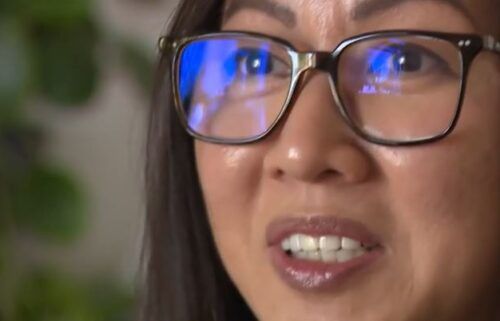Advocates call for national standards in youth therapy after allegations of abuse
By Jennifer Emert
Click here for updates on this story
ASHEVILLE, North Carolina (WLOS) — Tens of billions of public funds help pay for troubled youth treatment, but public records show more than 350 preventable child deaths nationwide.
It’s why survivors and some in the industry are calling for minimum national harm reduction and safety standards. News 13 digs into why the industry has gone widely unchecked, and why transparency matters.
Claims of humiliation are part of the federal civil complaint a former wilderness therapy client filed in US District Court in Asheville.
“They wouldn’t always let us take a break if we had to pee, and kids would pee in their pants and be forced to keep hiking in soiled clothes for hours,” said Gerti, a former wilderness therapy client who asked to be referenced by her first name only.
Negligence and reckless and wanton abuse are also a part of the claims in Gerti’s case.
“One of the kids in my group had sexually assaulted two other kids that disclosed to the group, and we were not separated from this kid. It was written off as being trauma,” explained Gerti, who spoke with News 13 WLOS about her own assault while in the program in March 2024.
She’s one of over 200,000 most vulnerable youth funneled into residential mental health treatment annually and part of a growing chorus on social media and Reddit calling for greater accountability of an industry that’s gone widely unchecked.
Ensuring safety falls to state inspections of facilities and programs calling out deficiencies and working with programs on improvements.
Still, North Carolina’s Department of Mental Health Licensure, through the Division of Health Service Regulations, admitted to News 13 they lack “sufficient staff to conduct annual surveys and timely investigate complaints about care provided by licensed residential and non-residential mental health facilities.”
“Stuff that’s been in the recent news is a good reminder for us that ‘hey, there is more work to do,’” said Derek Daley, SUDC vice president of the National Association of Therapeutic Schools and Programs or NATSAP.
NATSAP is a membership association dedicated to residential treatment centers.
“I came into this work having lost two family members to substance abuse and mental health, and so that’s really how I started in this work, motivated by two family members who were not served well in mental health in the health care system,” said Daley.
STOP INSTITUTIONAL CHILD ABUSE ACT OR SB 1351
It’s why the group is calling on Washington, D.C., lawmakers for federal legislation. It would create a work group looking into minimal standards of best practices for protecting the health, safety, care, treatment and appropriate placement of kids in residential programs.
“This is serious stuff… it’s serious work and it sometimes holds risks, and that’s something we all have to take really seriously as we do every single day,” said Kelly Webster, BA, NATSAP Treasurer.
Webster said minimum standards are needed.
“There are some standards of minimum care around what kind of staff training you have, what kind of background checks are required for the people who are going to be working with the students, what some of the therapeutic techniques and interventions are used. Those things can be standardized and should be to ensure that there’s quality programming,” said Webster.
Webster told News 13 that there are basic things parents need to look for as to whether a program is safe or not.
“Part of what we should be looking for are outcomes. Are they using evidenced-based practices? Is it safe? This is all data that’s being collected right, and those are some really basic expectations that programs need to be able to be tracking clients, be understanding the effectiveness of their program as well as tracking safety data,” said Daley.
Information like that isn’t always transparent. The measure hasn’t made it far, sitting in US House and US Senate subcommittees for over a year.
Some question if the legislation is enough, pointing out it’s essentially a survey and doesn’t set requirements or penalties that include automatic revocation if standards aren’t met.
Please note: This content carries a strict local market embargo. If you share the same market as the contributor of this article, you may not use it on any platform.


